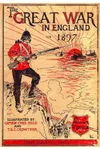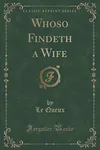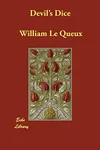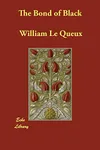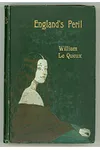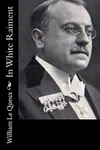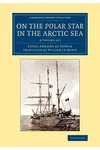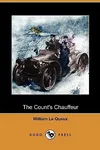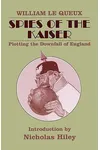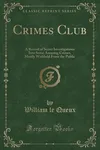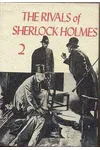Picture a storyteller who spun tales of spies and invasions that had pre-WWI Britain on the edge of its seat—meet William Le Queux! This Anglo-French author and journalist wasn’t just a master of espionage novels; his gripping stories, like *The Invasion of 1910*, fanned the flames of national security debates, making him a literary sensation with a knack for thrilling readers.
Born in 1864, Le Queux’s life was as adventurous as his plots, blending fact and fiction in a way that kept readers guessing. His work didn’t just entertain—it shaped public opinion and even influenced the creation of Britain’s secret services. Let’s dive into the world of this prolific writer whose pen was mightier than any sword!
The Making of William Le Queux
William Tufnell Le Queux was born on July 2, 1864, in London to a French father and an English mother, a mix that gave him a unique perspective. Educated in Europe, he studied art in Paris and wandered through France and Germany, soaking up experiences that would later fuel his stories. Initially a journalist, he wrote for French newspapers before returning to London in the late 1880s to edit magazines like *Gossip* and work as a parliamentary reporter for *The Globe*. By 1893, tired of the newsroom grind, he turned to writing full-time, channeling his love for adventure and intrigue into fiction.
William Le Queux’s Unforgettable Stories
Le Queux’s bibliography is a treasure trove of over 150 novels, with espionage and invasion literature as his calling card. His 1906 blockbuster *The Invasion of 1910*, co-written with H.W. Wilson, imagined a German assault on Britain, serialized in the *Daily Mail* with such fanfare—think actors in German uniforms parading London—that it sold over a million copies in 27 languages. Its detailed military scenarios, inspired by Field Marshal Earl Roberts, gripped readers and sparked debates about Britain’s defenses.
Other gems include *The Great War in England in 1897*, an earlier invasion fantasy pitting France and Russia against Britain, and *Spies of the Kaiser* (1909), which fed into pre-war Germanophobia. Le Queux’s style was fast-paced and sensational, blending romance, mystery, and thriller elements. While critics sniffed at his melodramatic prose, readers couldn’t get enough of his pulse-pounding plots and xenophobic undertones, which mirrored the era’s anxieties.
His knack for weaving real-world fears into fiction made his stories feel eerily prescient. During World War I, he even claimed the Germans were after him for exposing their schemes, though the police dismissed him as overly paranoid. Still, his tales of spies like Duckworth Drew, some say a precursor to James Bond, kept the public hooked.
Why William Le Queux Matters
Le Queux’s impact went beyond entertainment. His invasion novels stoked public paranoia so effectively that they’re credited with pushing Britain to establish the Secret Service Bureau, the forerunner of MI5 and MI6. By highlighting Britain’s military vulnerabilities, he galvanized support for defense reforms, even if his stories leaned on exaggeration. His partnership with publishing magnate Lord Northcliffe turned his books into cultural phenomena, shaping how Britain viewed foreign threats.
Though his star faded after the war, Le Queux’s legacy as a pioneer of spy fiction endures. His ability to tap into societal fears laid the groundwork for modern thrillers, influencing writers like John Buchan and Ian Fleming. For better or worse, he was the voice of a nervous nation, turning what-ifs into page-turners.
- Born: July 2, 1864, London
- Died: October 13, 1927, Knocke, Belgium
- Key Works: *The Invasion of 1910*, *The Great War in England in 1897*, *Spies of the Kaiser*
- Notable Fact: Served as honorary consul for San Marino
Ready for a thrilling ride? Snag *The Invasion of 1910* and dive into William Le Queux’s world of spies and suspense!

